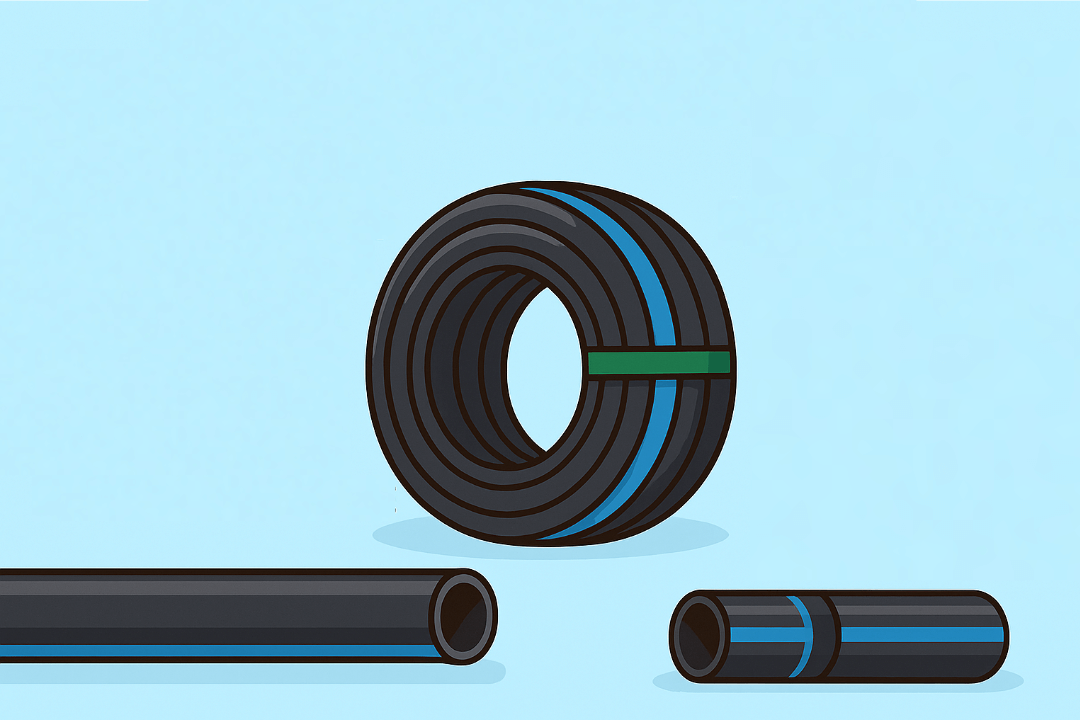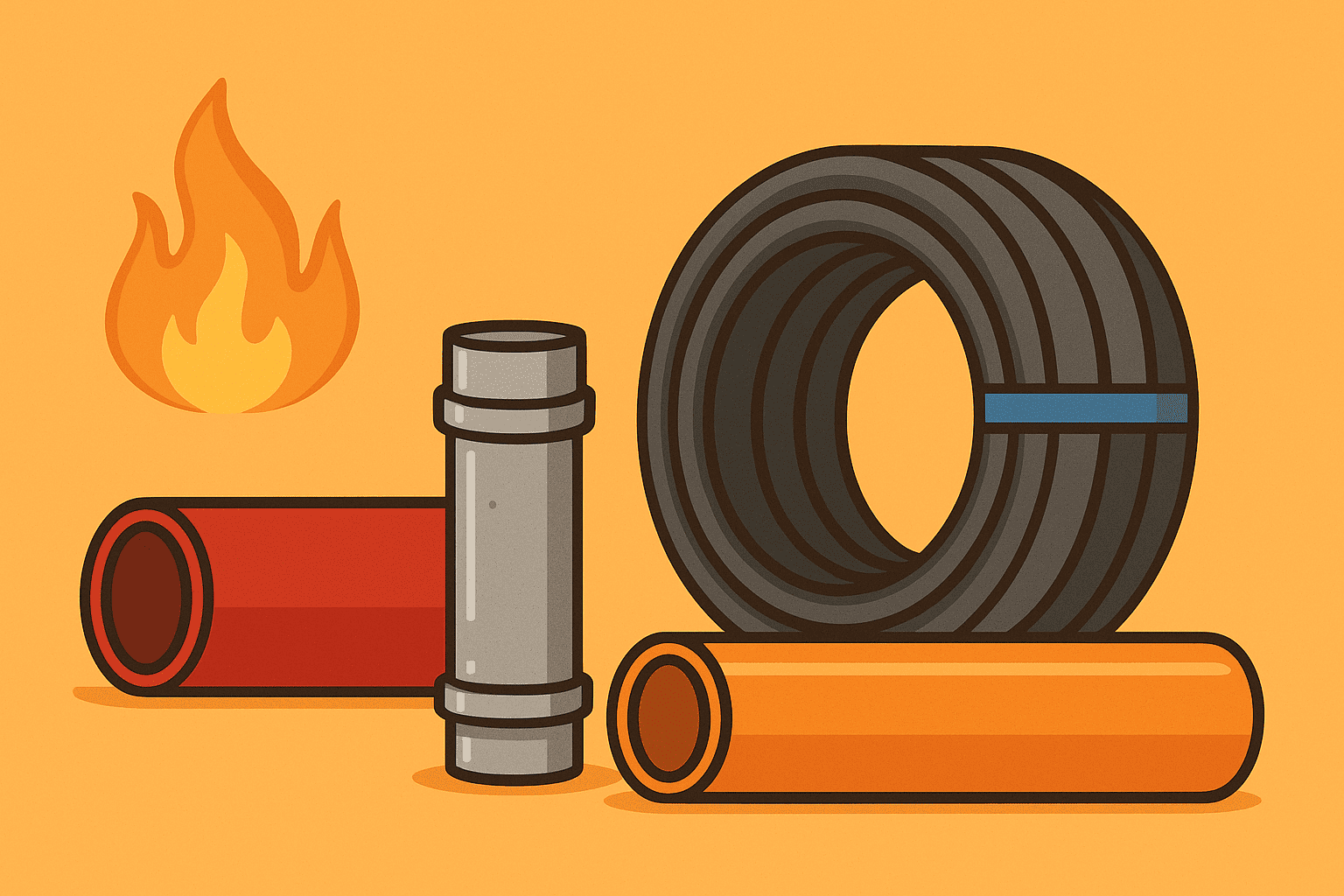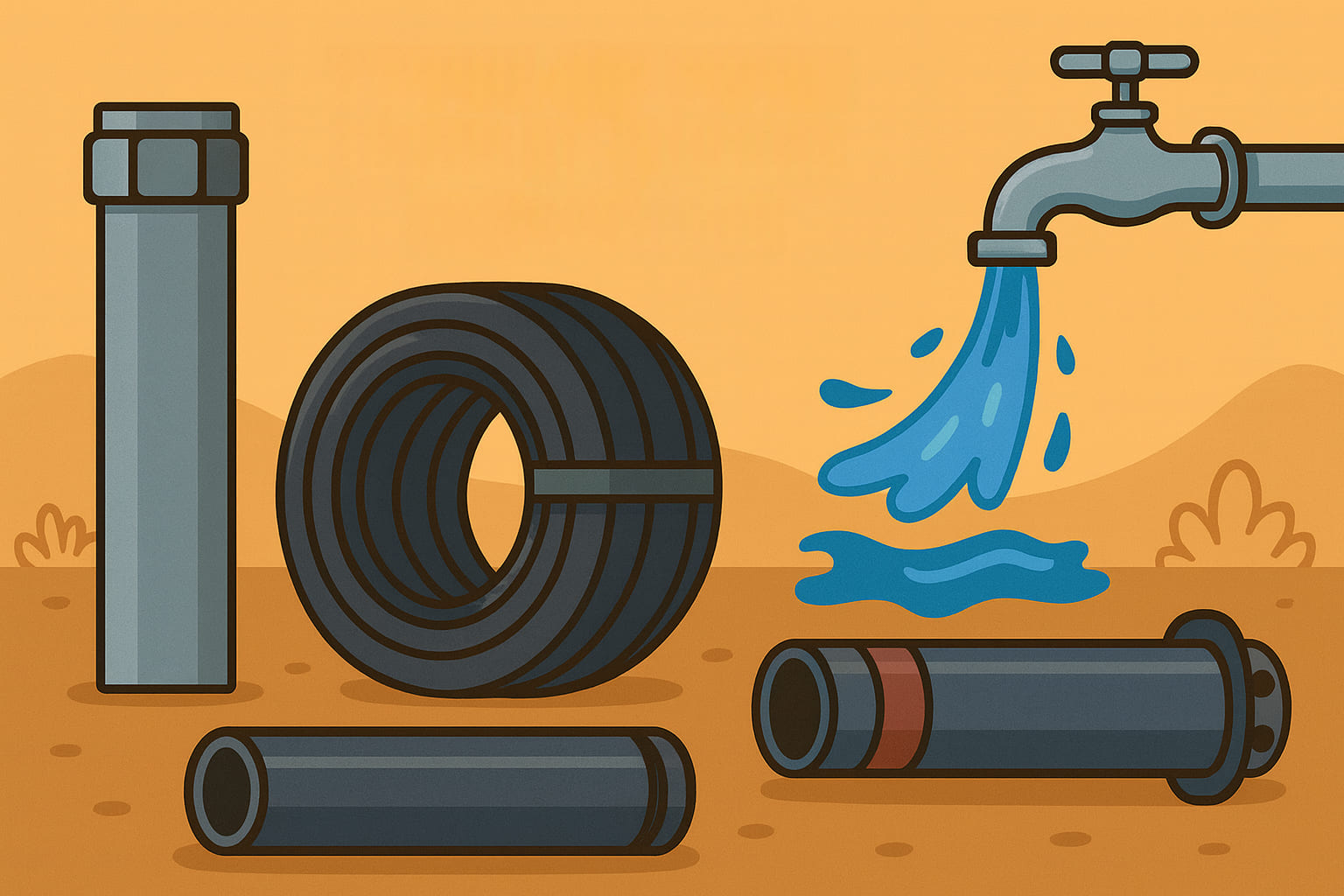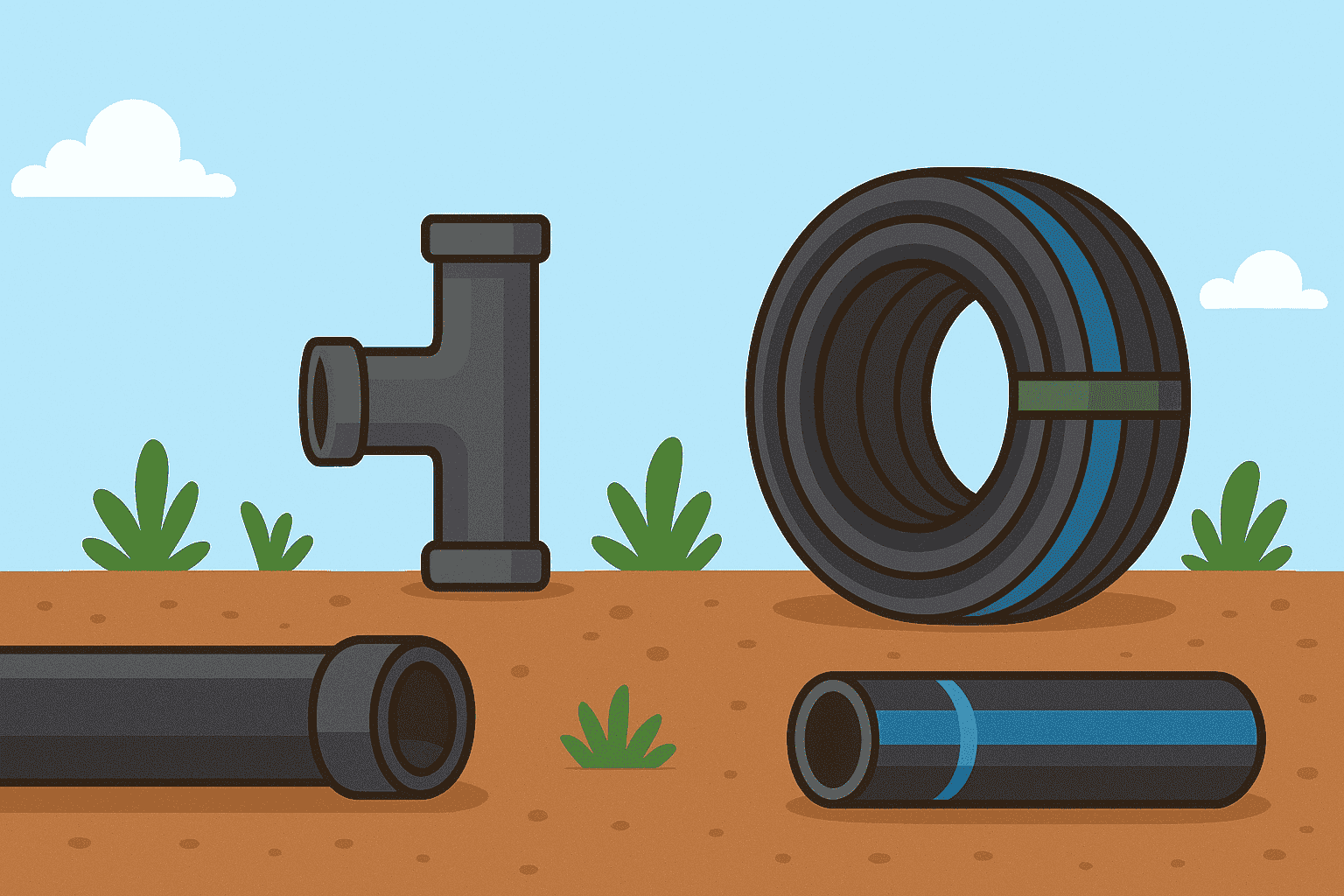Advantages and Disadvantages of High-Density Polyethylene (HDPE) Pipes

High-Density Polyethylene (HDPE) pipes are among the most widely used solutions in infrastructure, water, gas, and sewage projects. Thanks to their unique features, they have become the ideal choice for many contractors and engineering companies. In this article, we will review the main advantages and disadvantages of HDPE pipes to help engineers, contractors, and project managers make the right decisions when selecting materials.
Advantages of HDPE Pipes
- High Durability and Longevity
HDPE pipes resist corrosion, chemical reactions, and weathering factors, which makes them last for decades without needing frequent replacements. - Flexibility and Resistance to Breakage
Unlike rigid pipes, HDPE pipes are flexible and resistant to cracks caused by soil movement or heavy loads. - Lightweight and Easy Installation
Thanks to their lightweight nature, transporting and installing HDPE pipes is easier compared to metal or concrete alternatives, which reduces project costs. - Leak-Free Connections
By using advanced welding techniques such as butt fusion and electrofusion, HDPE pipes provide leak-free networks, ensuring safe and reliable water and gas delivery. - Environmentally Friendly
HDPE pipes are recyclable and contribute to sustainable infrastructure projects.
Disadvantages of HDPE Pipes
- Higher Initial Cost
The purchase cost of HDPE pipes may be slightly higher than other types, but the investment pays off in the long term thanks to reduced maintenance and longer lifespan. - Specialized Installation Equipment
HDPE pipe installation requires trained technicians and specialized welding equipment, which may increase the initial setup cost. - Thermal Expansion
HDPE pipes expand and contract with temperature changes, requiring proper engineering considerations during installation.
Comparison: HDPE vs. Other Pipe Types
- PVC: Lower cost, but shorter lifespan and weaker impact resistance.
- Cast iron: Strong, yet very heavy and prone to rust over time.
- Steel: Handles very high pressure, but more susceptible to corrosion and costly to maintain.
Bottom line: HDPE offers the best overall balance of cost, performance, and longevity.
Practical Applications of HDPE Pipes
- Drinking water networks: Thanks to the material’s purity and resistance to water.
- Drainage: Resistant to corrosion and chemicals.
- Modern irrigation: Flexible and withstands harsh soil conditions.
- Natural gas: Safe and easy to install.
- Major infrastructure projects: Such as firefighting networks and main water lines.
HDPE Pipe Maintenance
- Despite their durability, maintenance is essential to maintain their efficiency:
- Periodic inspection of joints.
- Ensure that welding systems are working properly.
Replace damaged parts quickly to avoid further losses.
Contact Us for Complete HDPE Pipe Solutions
If you are looking for a company specialized in implementing water networks using high-density polyethylene (HDPE) pipes, United Engineers offers you the most suitable solutions with the highest quality and on time.
We provide:
- Supply of all sizes of HDPE pipes.
- Welding and jointing parts and supplies.
- Maintenance and calibration services.
- Welding machine rental and sales.
- Specialized engineering consulting for major projects.
📞 Contact us now for a consultation and learn how we can support your projects with the best technical solutions. Our team is ready to answer all your inquiries!




